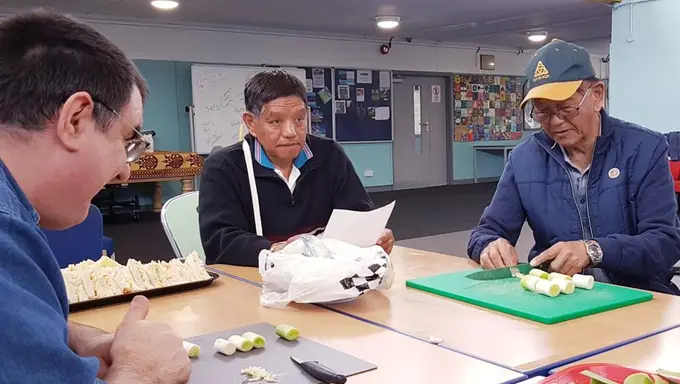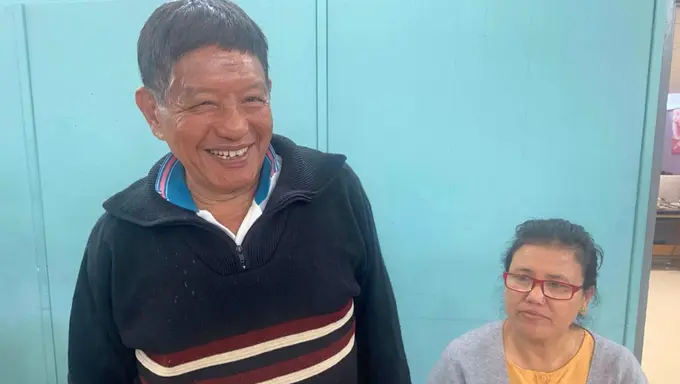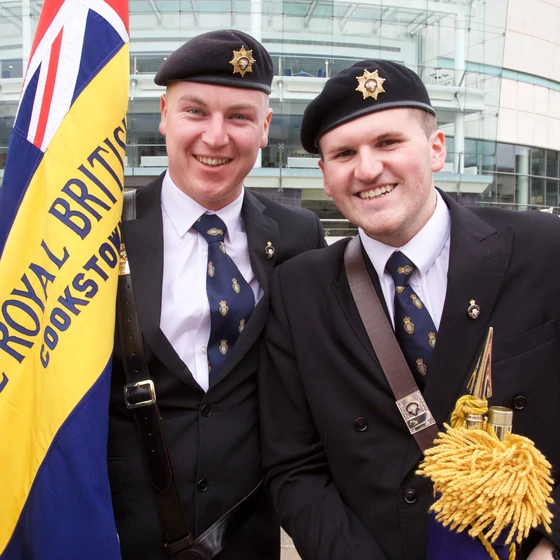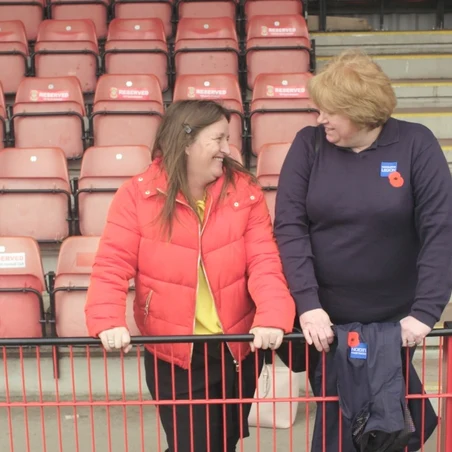Ganga served in the 1st Battalion 2nd KEO Gurkha Rifles for 21 years but had to adapt to a very different life in the UK when he moved from Nepal.
Ganga joined the British Army in 1971 when he was 18 and served in Hong Kong and Brunei. He retired as a Lieutenant in the Queen Gurkha Officers in 1993 and went back to live in Nepal.
Ten months ago Ganga and his wife came to settle in the UK and despite a relative helping them with the move he initially struggled to adapt and integrate with the local community.
“When [Nepalese] people come here to the UK, they have never been here on civilian streets, not even the military personnel,” Ganga says.
“So these things are quite surprising for them and they have problems settling down and mixing with other people as well.”
To help adapt to life in the UK, every Thursday Ganga, with his wife Sashi, attends a Nepalese Gurkha veterans’ community project run by Age UK Bromley and Greenwich, which the Legion helps fund through our External grants programme.
Ganga volunteers for the project; helping with interpreting and settling in new members. Sashi now also runs a popular sewing session.
The project helps the Gurkha community and veterans to overcome different challenges and enjoy their lives in the UK. The weekly group sessions include activities from arts and crafts, sporting actives and dance to English lessons, cooking, health talks and shopping trips to building confidence. Age UK Bromley and Greenwich also offer welfare, housing and benefits advice, as well as help with navigating the NHS and social care systems.

Nepalese people say they have found it very difficult to open up themselves into this society.
“So these things, this activity and creativity it helps them to talk to other people. So now when they go to the market or the hospital or bank and they have more confidence, even if they have a language problem," Ganga says.
“They know how to talk to people with eye to eye contact rather than going to one corner and keeping quiet unless some help comes.”
Ganga explained how the programme helps him and others in the Nepalese community become more familiar with Western customs.
“In Nepalese society ladies they do not hug each other,” Ganga explains.

“Now they are openly hugging each other and other people and saying good morning.”
“I have noticed that many ladies they are very open and friendly now. But before they were hesitant. Shutting out and looking from a distance quietly rather than mixing.”
“Although they have a language problem they are very open now. It looks different than before [the group].”
“It's not only helping, now they're enjoying the life,” Ganga says.
“The most important thing is that they are enjoying life so they don’t feel segregated being away from Nepal. It is the best idea to make them happy so they don't feel homesick.”
“I don't feel homesick now.”






